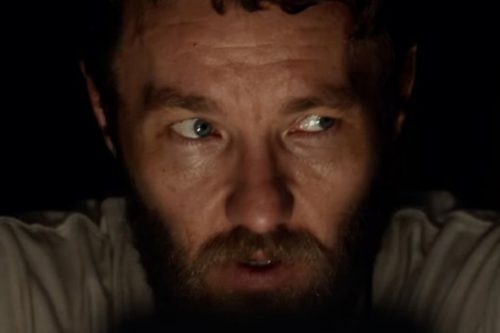
Too much has already been said about It Comes at Night, a completely insidious and utterly unsettling new horror film that continues to worm its way under my skin, days after viewing it.
So, instead of talking about It Comes at Night, and thereby disarming its power to shock and disturb you, I’d like to speak for a moment about horror films in general, and what they tell us about ourselves.
The exquisite hidden truth of all the best horror films is that, really, there are no monsters, only human beings, and the evil we do to one another — all in the name of safety and comfort. Hell is always other people.
Zombies, killer sharks, gargantuan monkeys, spawning aliens — these are simply forces of nature blown up and writ large, singular and entirely predictable organisms doing what they do, which is kill. Trains kill people, too, but the only way I’m getting run over by a train is if I throw myself on the tracks, or someone pushes me.
The oceanic terror of Jaws ends if the mayor simply closes the beach, and Alien becomes a very short film if the evil corporation doesn’t force an emergency stop in deep space. The Walking Dead? It’s not the zombies. It’s the survivors.
In horror films, life itself is the monster, and death is the disguise it wears. And our vicarious part in this drama remains obscured and thereby unenlightened, which is why scary movies continue to scare us. Nothing is natural about human nature; in fact, horror films play a great trick on us by confounding humanity and nature as polar opposites, confronting us with an organic, consistent threat and revealing our own turncoat monstrosity.
It’s a great scapegoat act. Fools us every time. Boo!
Rod Serling understood the political implications of this, which is why The Twilight Zone remains the most radical political show in the history of television. And we still don’t have the ears to hear it. The monsters are indeed due on Maple Street. Any day now. Any day, neighbor.
Is Trump a monster? A lot of people think so. Are you a fascist or an anti-fascist? Are you holding the first stone? Let the massacre begin.
Which brings me, at some length, to writer-director Trey Edward Shults’ absolutely chilling new movie. Understandably, It Comes at Night is being marketed as a horror film, but more properly I would call it a fear film: that corrosive, soul-stripping fear that turns the higher human self into a mean, paranoid, murderous bastard.
It Comes at Night is set almost exclusively in a boarded-up house where Paul (Joel Edgerton), his wife, Sarah (Carmen Ejogo), and teenaged son, Travis (Kelvin Harrison Jr.), are holed-up against an apparent outbreak of disease that may or may not be global. Evidence of any real apocalyptic threat is scant, as far as we can see, save for the paranoia and discomfort that has the family walking around in gas masks and toting guns.
Reluctantly, after a violent encounter, Paul agrees to take in a family of strangers forced from their own home in their search for water. As Will (Christopher Abbott), his wife, Kim (Riley Keough), and their young son, Andrew (Griffin Robert Faulkner), settle in, things become increasingly unsettled and edgy. Paul, the faltering patriarch, sees threats around every dark corner, and he’s indoctrinated his family into a level of distrust that makes their vigilance indistinguishable from a state of constant warfare.
Only Travis, a mild-mannered and inquisitive kid, seems to resist the unnatural order dictated by his father, who is always quick to play judge, jury and executioner in the name of family protection. It is in the character of Travis that the film finds its quiet barometer of compassion; he plays Jesus to his father’s weak Caesar act (it’s no accident that Paul, before the alleged shit hit the supposed fan, was a history teacher specializing in the Roman Empire).
There has always been a very fine line separating dystopia from horror, 1984 from Dawn of the Dead. This film obliterates that line, revealing the real apocalypse at the heart of the human condition. In a sense, It Comes at Night creates a kind of erasure, holding a mirror up to its audience and exposing the lie at the heart of our fear. There are moments of real fright in this film, but the lurking terror it inspires is, in the end, of a distinctly existential variety.
Nietzsche said it best: “Whoever fights monsters should see to it that in the process he does not become a monster.” Or, put differently, what comes at night might just kill us in broad daylight. (Broadway Metro, Cinemark 17, Regal Valley River)